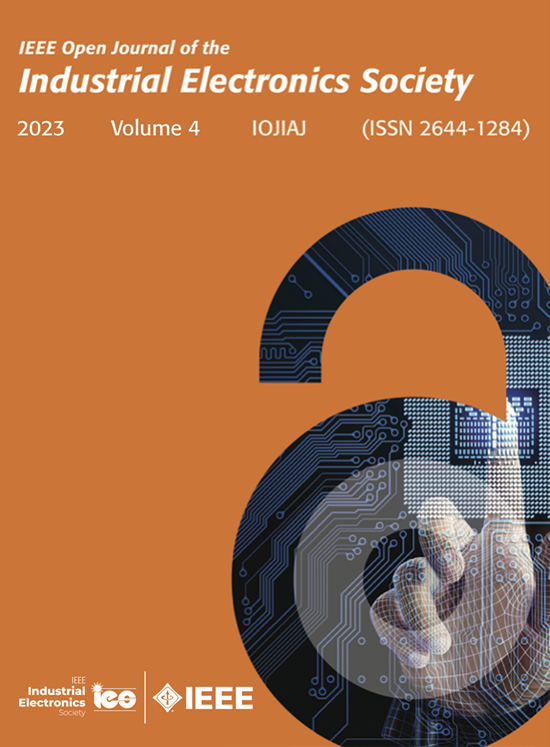基于卡尔曼滤波的经典DC-DC功率变换器无模型预测控制
IF 4.3
Q1 ENGINEERING, ELECTRICAL & ELECTRONIC
IEEE Open Journal of the Industrial Electronics Society
Pub Date : 2025-07-25
DOI:10.1109/OJIES.2025.3592876
引用次数: 0
摘要
传统的模型预测控制(MPC)在许多电力电子和电机驱动应用中得到了广泛的应用。MPC的性能在很大程度上取决于变换器物理参数的精度,物理参数的不匹配会导致控制退化,从而导致MPC的次优运行。由于变流器的工作点和老化,变流器的参数在运行过程中不断变化,因此很难准确估计变流器的参数。近年来,无模型预测控制(MF-PC)已被应用于电机驱动和电力电子变流器,特别是逆变器和整流器,以解决预测控制方法的依赖模型问题。然而,针对dc-dc变换器提出的MF-PC是一个开放的创新科学领域。本文提出了一种用于二阶dc-dc变换器的MF-PC,如升压、降压、降压-升压和非反相降压-升压变换器。该方法采用卡尔曼滤波器估计正负电感电流斜率,精度高,计算成本低。实验结果表明,与传统的基于模型的方法相比,该方法对参数和模型变化具有较强的鲁棒性。本文章由计算机程序翻译,如有差异,请以英文原文为准。
Kalman Filter-Based Model-Free Predictive Control of Classical DC–DC Power Converters
Conventional model predictive control (MPC) of power converters has been widely found in many power electronics and motor drive applications. The performance of MPC strongly depends on the precision of the converter’s physical parameters, and a mismatch of them produces a control degradation, which leads to MPC suboptimal operation. Ensuring a precise estimation of the converter’s parameters is difficult because they continuously change during the operation process due to their operating point and aging. Recently, model-free predictive control (MF-PC) has been used in motor drives and power electronics converters, especially inverters and rectifiers, to deal with the predictive control method’s dependency model. However, MF-PC proposed for dc–dc converters is an open innovation scientific field. This article proposes an MF-PC designed for second-order dc–dc converters, such as the boost, buck, buck–boost, and noninverting buck–boost converters. The presented approach uses a Kalman filter to estimate the positive and negative inductor current slopes with high accuracy and a low computational cost. The experimental results show that the proposed method is robust against parameter and model changes compared to conventional model-based solutions.
求助全文
通过发布文献求助,成功后即可免费获取论文全文。
去求助
来源期刊

IEEE Open Journal of the Industrial Electronics Society
ENGINEERING, ELECTRICAL & ELECTRONIC-
CiteScore
10.80
自引率
2.40%
发文量
33
审稿时长
12 weeks
期刊介绍:
The IEEE Open Journal of the Industrial Electronics Society is dedicated to advancing information-intensive, knowledge-based automation, and digitalization, aiming to enhance various industrial and infrastructural ecosystems including energy, mobility, health, and home/building infrastructure. Encompassing a range of techniques leveraging data and information acquisition, analysis, manipulation, and distribution, the journal strives to achieve greater flexibility, efficiency, effectiveness, reliability, and security within digitalized and networked environments.
Our scope provides a platform for discourse and dissemination of the latest developments in numerous research and innovation areas. These include electrical components and systems, smart grids, industrial cyber-physical systems, motion control, robotics and mechatronics, sensors and actuators, factory and building communication and automation, industrial digitalization, flexible and reconfigurable manufacturing, assistant systems, industrial applications of artificial intelligence and data science, as well as the implementation of machine learning, artificial neural networks, and fuzzy logic. Additionally, we explore human factors in digitalized and networked ecosystems. Join us in exploring and shaping the future of industrial electronics and digitalization.
 求助内容:
求助内容: 应助结果提醒方式:
应助结果提醒方式:


